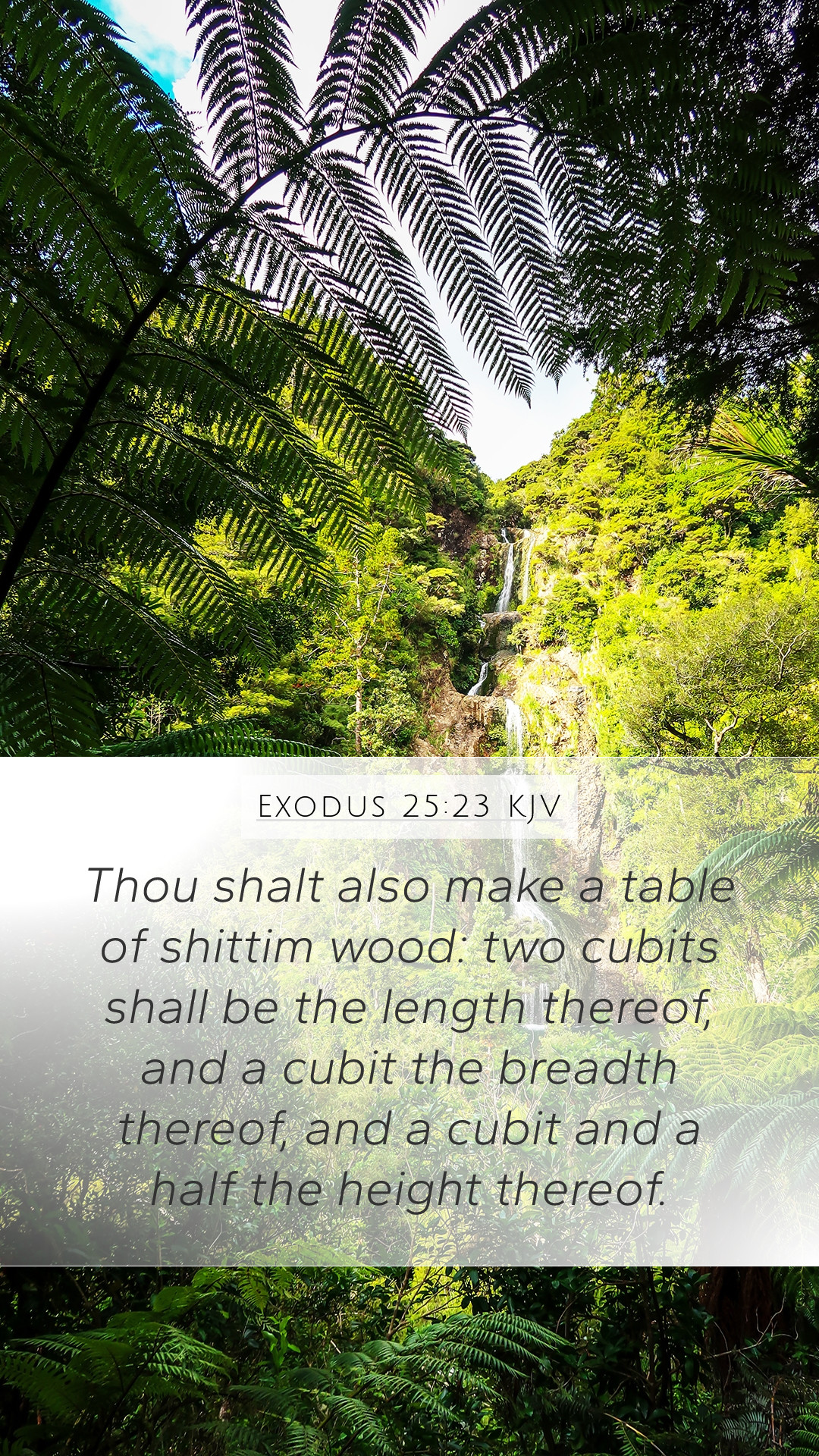Understanding Exodus 25:23 - Bible Verse Meaning and Interpretation
This passage, Exodus 25:23, encapsulates essential elements of the instructions provided by God to Moses regarding the construction of the Tabernacle, especially focusing on the table for the bread of Presence. Here we provide a detailed commentary and interpretation based on public domain sources.
Verse Context and Overview
Exodus 25:23 states, "Thou shalt also make a table of shittim wood: two cubits shall be the length thereof, and a cubit the breadth thereof, and a cubit and a half the height thereof." This instruction is part of a larger section outlining the design of the Tabernacle and its furnishings.
The Significance of the Table
The table is symbolic within the covenant relationship between God and Israel. It represents God's provision, as it would hold the bread of Presence, which signifies the ongoing relationship and sustenance provided by God to His people.
Bible Verse Meanings and Interpretations
-
Matthew Henry’s Commentary:
Henry emphasizes the specific and divinely ordained nature of every aspect of the Tabernacle’s design. He highlights the importance of the table as a place for bread, symbolizing fellowship with God and His ongoing remembrance of His people.
-
Albert Barnes’ Notes:
Barnes notes that the dimensions and materials prescribed reflect the significance of the table. The use of shittim wood signifies durability and strength, and the measurements offer a clear indication of God’s desire for precision in His worship-related constructions.
-
Adam Clarke’s Commentary:
Clarke further elaborates on the functionality of the table, stating that it served both as a physical and spiritual meeting place between God and Israel. He ties the significance of the bread upon the table as a reminder of God's covenant and presence among His people.
Theological Implications
This verse highlights crucial theological themes found throughout Scripture:
- Divine Presence: The table signifies God's promise to always provide for and be present with His people.
- Covenant Relationship: The bread signifies the ongoing covenant relationship, calling the Israelites to remember God’s faithfulness.
- Worship and Fellowship: The table serves as a reminder of the communal aspect of worship, where believers engage in fellowship with God.
Practical Applications
Understanding Exodus 25:23 provides insights into worship and communal life:
- Worship through Details: God cares about the details of how we worship Him, inviting believers to put care and thought into their acts of worship.
- Community Fellowship: The table serves as a metaphor for inviting others to share in the blessings and sustenance God provides.
- Remembrance: Regularly remembering God's provisions in our lives encourages gratitude and strengthens faith.
Cross References
This verse connects well with several other Scripture passages that reinforce its themes:
- Leviticus 24:5-9: Discusses the setting of the bread on the table as an offering to God.
- Hebrews 9:2: Refers to the Tabernacle’s design and furnishings, including the table.
- John 6:35: Jesus describes Himself as the bread of life, connecting back to the symbol of the bread in the Tabernacle.
Conclusion
Exodus 25:23 provides profound insights into the nature of God’s provision and the importance of sacred spaces in worship. Through studying this verse and its commentaries, believers can gain a deeper understanding of God's continuous desire for a relationship with His people.
By applying these Biblical interpretations, we can enrich our Bible study groups and enhance our online Bible study experiences, discovering the rich meanings embedded within Scripture.


